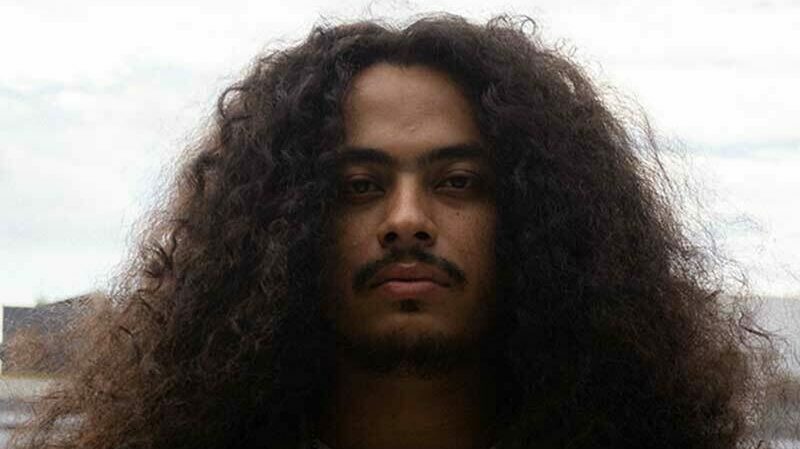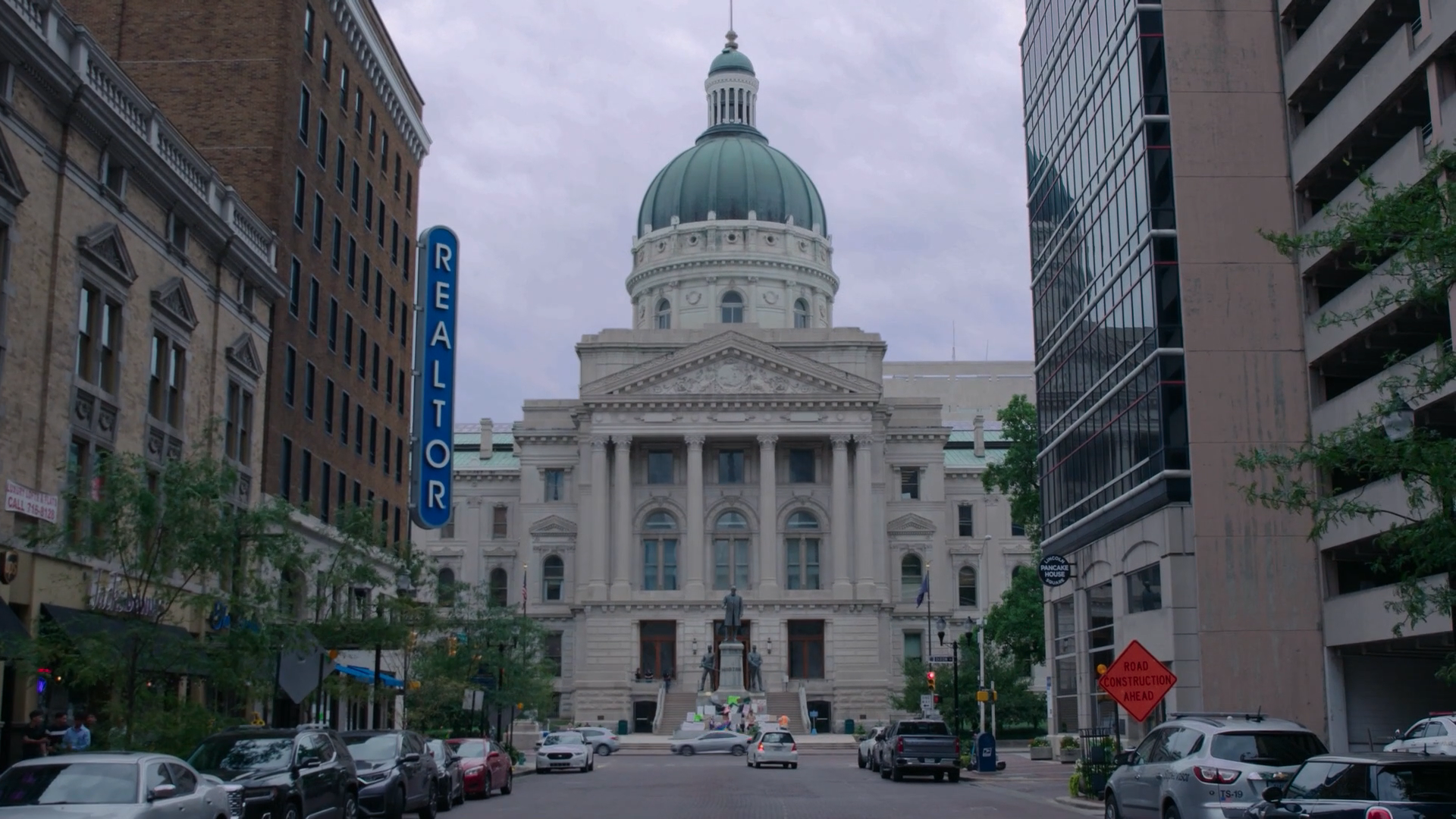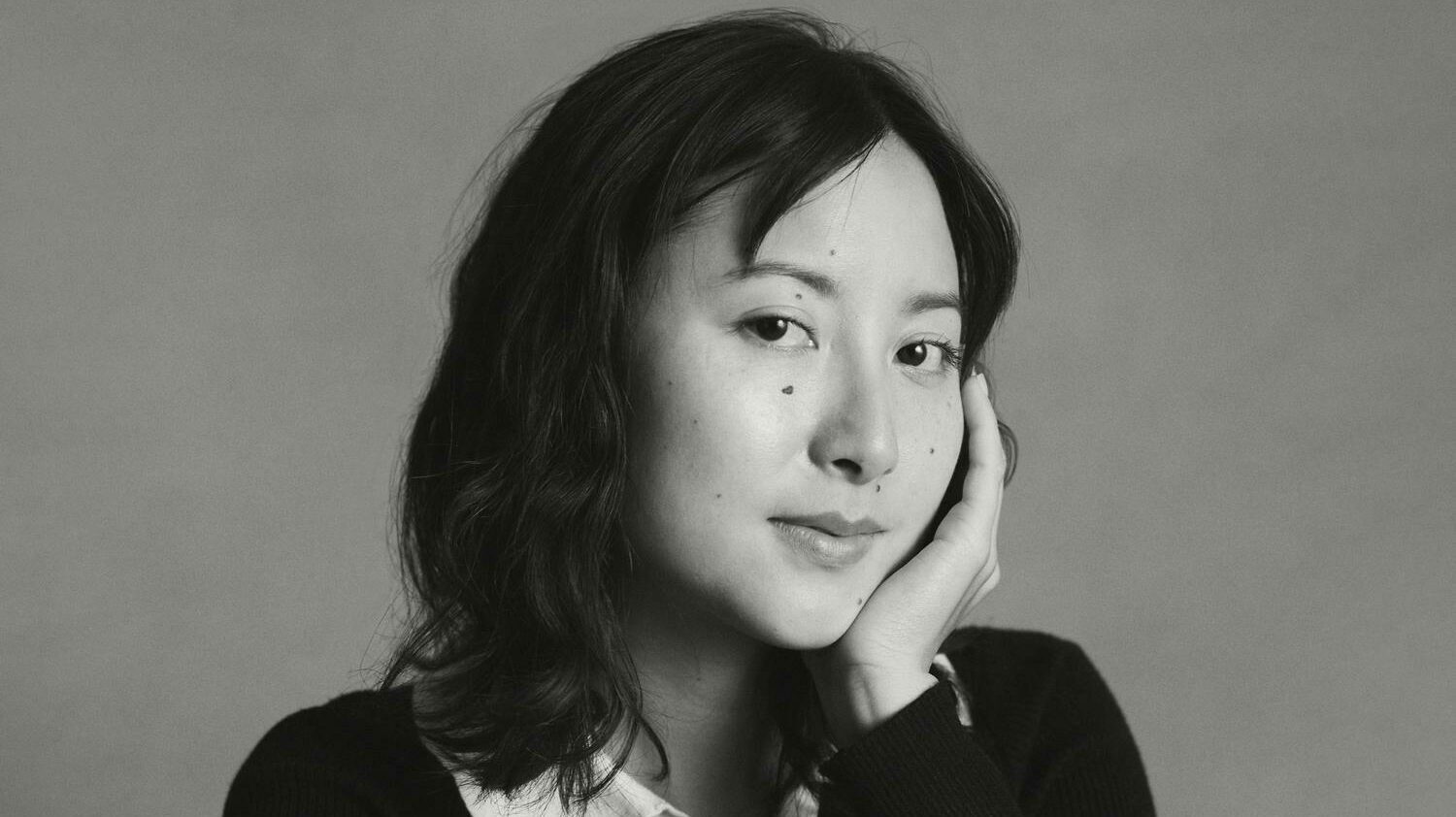'Everything Fell into Place': Jeff Chang and Bao Nguyen Gon’ Be Alright
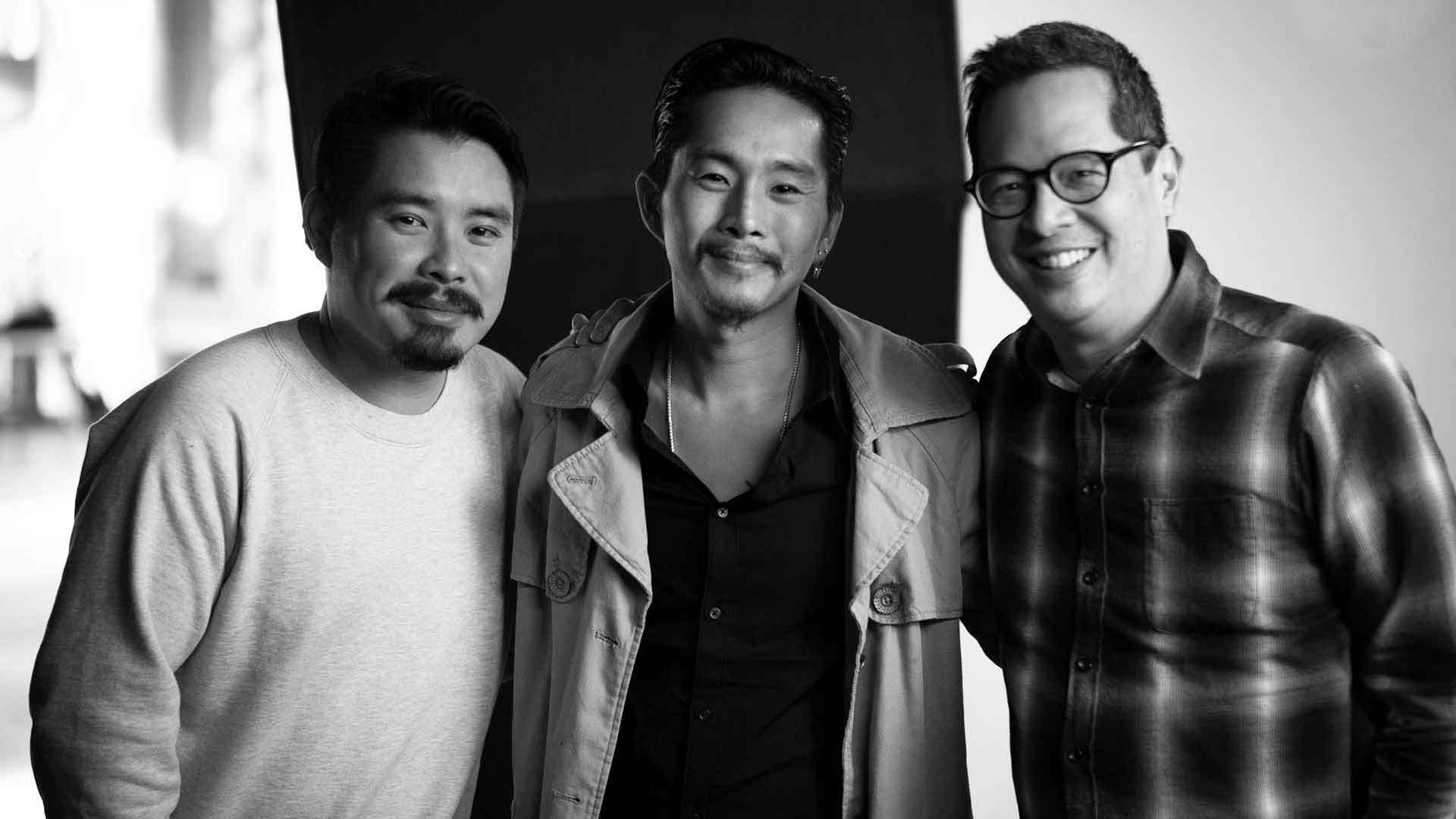
Editor's Note: This article was previously published for ITVS November 2019.
Filmmaker Bao Nguyen and writer Jeff Chang talk about connecting with people and with each other, in the making of "We Gon' Be Alright."
When everything dovetails together so nicely for a creative project, any other filmmaking team would love to know just how it happened. Serendipity? Lightning in a bottle? Blood, sweat, and tears?
The collaborators behind the ITVS Short-Form Open Call-supported "We Gon' Be Alright" documentary web series, filmmaker Bao Nguyen and writer/producer Jeff Chang, may not be able to give you an exact formula to repeat their perfect mix of chemical ingredients and timing to make it all happen, but in this chat conducted when they dropped by the ITVS office, they shed some light on how it all came together. Award-winning writer Chang, author of the collection of essays that inspired the series of the same name, which won the Northern California Nonfiction Book of the Year, also wrote "Can't Stop Won't Stop: A History of the Hip-Hop Generation," and was named by The Utne Reader as one of "50 Visionaries Who Are Changing Your World." Filmmaker Nguyen's feature doc directorial debut, "Live From New York," opened the 2015 Tribeca Film Festival, has been a PBS/WGBH Producers Workshop Fellow, and has produced work for the New York Times, HBO, NBC, Vice, ARTE, and PBS.
They each brought something unique and special to the table to make "We Gon' Be Alright" happen. The series, which explores a nation of historically unprecedented diversity that also seems to be becoming more separate and unequal, can currently be viewed on YouTube.
We join our conversation, already in progress.
Craig: Let's talk about the collaboration process. What was that like for you both? And how did you first come together to work on this, as writer and filmmaker--and all the hats you each wear?
Bao: It's kind of a Rashomon story. There's multiple perspectives. It's like who's telling the truth. [laughs] No, so Jeff and I met in New York over lunch discussing a different project. We got introduced through a mutual friend and we just kind of clicked. I mean I think I clicked with Jeff, I don't know [laughs], we'll hear what he says.
Over time, I read his books and just fell in love with his writing. Then he came out with "We Gon' Be Alright." The format and the structure of these collections of essays are really engaging and as a filmmaker, naturally when I read anything I just visualize it. I'm not thinking of making it into a project necessarily but it's something I do with everything I read. I imagined the way a scene would play out or how even he was writing about stats and diversity and these animated graphics just popped in my mind.
After I read it I was working on another project--I was based in Vietnam and Jeff shot me an email: "I think we should talk about doing this as a series." We chatted on the phone, at the end of 2016, but our schedules were crazy. Jeff was at Stanford with a very specific work schedule because of the school year and I'm in America maybe three, four times a year. It's kind of sporadic. We thought nothing of it.
Then in March 2017, I get a call randomly from Karim Ahmad [at ITVS at the time] and he's like "[Short-Form] Open Call is happening. Do you have any series ideas?" and it didn't immediately pop up in my mind with Jeff, but as Karim was explaining what they were looking for I thought, "Oh wow, this might be perfect for 'We Gon' Be Alright.'" I called Jeff immediately after--this was a week before the Open Call deadline, too, oh my goodness. I said, "Can we do this?" So we did it and we were lucky enough to have been funded.
Craig: And Jeff, you were aware of Bao's work?
Jeff: I was super aware of his work. That meeting we just had so much in common. We were talking about a project about a subject of mutual interest. We just had the same kind of approach and the same kind of ideas about it. It was natural. Even the Open Call process--the back and forth of it--was actually really, really easy. And the thing is I've been around because I'm 69 years old [laughter]--according to the internet. I've worked with a lot of folks, and working with Bao has always been super easy.
We just had a trust level from the very beginning and I think that's everything. To know you're in good hands, that you share all kinds of ideas in common, and that whatever is happening, your partner is always going to take it to the next level. Take it higher and higher and higher until it's the best thing that it could be. I just crave that kind of interaction, it's so rare. The whole process has been like that.
Craig: This is obviously such a huge and ever-timely topic to tackle. How did you decide what to focus on for the series to adapt conceptually from the book, to keep this to a tight four episodes?
Jeff: We threw out a lot of ideas and looked at what would really stick. It was about trying to find the story. For instance, I knew I wanted to do something around the Harvard admissions story, and we knew we definitely had to do something on physical gentrification and re-segregation. And then Bao really liked the chapter on Cultural Equity and had these brilliant ideas about it.
For the last episode, as it turned out, the story ended up being in part about me and my family… I just get emotional even talking about it, because it was a gift that gave us a chance in some ways to process this deep loss that we had. And in doing so, this is the perfect example of taking it to that next level, making it also this big huge statement about the world as we see it. And the world as we want it to be. And so that piece came together last. Just everything kind of fell into place.
Bao: I would just add, all the chapters are just so rich that it was kind of easy. We could have made an episode out of any one of them.
Jeff: And we'd like to, in season 2.
Bao: Yeah. I didn't express it to Jeff necessarily at the beginning but "The Inbetweeners" was a no brainer to do as an episode [episode 4], because it was the most personal chapter in the book.
Jeff's writing--it's complex, but his voice kind of shines in each chapter. He has an authentic voice and he approaches it not just as a writer but as a human being connecting with subjects in each chapter. And it's hard to do that in a series [in which] you're meeting new people, and Jeff doesn't necessarily want his personality and in his life to be embedded in each episode. So I felt if we had one episode that was really personal, but at the same time talking about these very serious and complex issues, then we can tie the whole series together. And I think that was important.
Craig: Could you talk a little about the visual style for this film, choosing to shoot it in black and white, except for a few shots. It's a very conscious choice. What went into that decision? It's a very striking black and white.
Bao: So the cover of Jeff's book is really--
Jeff: It's a print by Damon Davis, from his Ferguson project, for the Ferguson protest, which plays a big role in the book. It's a very iconic image.
Bao: --I wanted to make sure that it's not just the spirit of the book in terms of the writing but also the aesthetics that Jeff wanted when he wrote the book.
When I heard the term "resegregation"--obviously segregation is the main part of that word, and I harken back to the days of the Civil Rights Movement, people being bused in Selma, those images are always black and white. In a way, things have progressed obviously, while some things haven't changed or things have evolved but digressed, it's like history is repeating itself. So that's why I felt like if we show those images of today in black and white there is a certain visual impact that we wouldn't get if it was just color. We made a conscious decision that the archival and the stock stuff would be in color, but everything we shot with our subjects would be in black and white.
Bao: So again it is a stark contrast between the personal stories that we're trying to tell versus the more contextual things.
Jeff: There's so many layers to it. Like the flipping of the past and the present, thinking about archival footage of protesters in Selma or in Montgomery. Thinking about that footage and how it's shaped our consciousness, and all that being in black and white. What looks to us through this sort of half-century lens on issues that are really clear, that was black and white. And now for so many, the issues are really the same issues that folks were facing back then.
Putting it back into black and white defamiliarizes us to our particular time period, and gives us a little bit of distance from it, but also this idea of the past appearing in color that Bao made a decision to do, of representing the fact that we've gone backwards from a period literally that was more colorful if you will, to a period in which there's so much polarization.
Going back to that idea of most of us living "in-between," trying to figure out where we stand within, that is kind of the point of the whole series.
The trust thing is super important and thinking about the way Bao put these into images, and wove a whole--it's hard for me to express. I write in words and Bao speaks in pictures and emotion, and just to see the way Bao interpreted those, it just gives a whole other set of layers of meaning to the subject I don't think I could have ever imagined. That's where the process has been really rewarding for me.
Craig: In episode two where you talk to a lot of recognizable Hollywood faces--all seem like down to earth people but are well-known celebrities. How did you get them to participate in this series and were they aware of your work before?
Bao: Cheyenne Nguyen who is 14 and is literally getting confirmed tomorrow by the Catholic Church. [laughter]
Craig: So we won't blame her if she hadn't read your book yet.
Jeff: Yeah. No not at all.
Bao: So I do some narrative work as well and I knew friends that were more active in speaking about representation in Hollywood and that they had opinions. And for the most part, they're not asked these opinions very often.
I was surprised after I talked to one person, they're like "Can I share this with other people?" So the floodgates opened. A lot of people that I respected in the industry have been working for decades. They wanted to talk to us. I personally love how we start with Kieu Chinh, who came over in 1975 and was in "The Joy Luck Club." Part of this very early wave of representation for Asian females. And we have Dianne Doan who is kind of an up and coming actress, she's in a new project called "Warrior" that was based on a treatment by Bruce Lee.
And then finally we have Cheyenne Nguyen who in a way is the hopeful voice in the piece because a lot of these things she doesn't even think about, it doesn't come up in when she approaches her acting, and I think we'd love one day where you don't have to ask questions like, "oh is Hollywood diverse enough?" or "Is there enough representation?"
Bao: She's also super wise to the ways of Hollywood. Like she was able to break down for us the difficulties that older folks face, she was able to break it down for us like that.
Jeff: The way that Bao treated that was really beautiful and amazing, because the episode is based on doing these close-ups, these portraits, and you have these moments where the portraits fade into each other. So one person disappears and the other person appears. There's a line in there where Kieu says, "you know, sometimes they have Vietnamese playing Vietnamese, and sometimes it doesn't matter because we all look alike to them."
Jeff: What Bao is doing in that was to emphasize visually our diversity, our differences, and challenging the viewer to see each person in their full humanity. So that was just a beautiful episode on so many levels. To be able to eliminate everything else from the background and just be able to focus in on the humanity of each person gave me a reminder of why we do this work. We're trying to connect with people.
Craig: What do you think you were able to accomplish having ITVS as a funder and partner and related to that how did the relationship with CAAM help, too?
Bao: I don't think we could have done it without ITVS, as they were the sole funder on the project and they've been supportive from day one and it's been a long journey. We really appreciate people like [ITVS's producer] Pam Torno, we couldn't have done it without her.
And we're forever in her debt and it's obvious ITVS has helped us find a platform to collaborate with each other.
There's not many opportunities where you have open calls to pitch projects from development. Usually you have to have a proof of concept. You have to be in post-production and then they can see what you've already done. But having that first step into executing and starting a story, a production, is crucial.
I've been fortunate enough to get some funding through [ITVS's] Diversity Development Fund as well and I think more funding opportunities like that are essential to having many stories told from many different perspectives.
And same with CAAM (Center for Asian American Media). They've been supportive of me as a filmmaker from day one. I'd like to think of them as my immigrant parents that actually supported me when my parents are like, "Go be a lawyer." [laughs]
We were just randomly meeting with them and they're like how can we help amplify the series? Without us even expecting it. And that's real kind of community. Not being [directly] involved, but "How can we help?" And I think CAAM has always done that, or at least from my perspective with the projects that I've worked on, with Don [Young] and Stephen [Gong] and Masashi Miwano. We were very grateful for that.
Jeff: Coming from outside of filmmaking for me, being a huge documentary fan and a huge fan of visual storytelling, of film, I had always been a fan of Independent Lens. One of the cool things is just to know we were able to do this because of ITVS's support, and it made me think of all the other folks in film festivals we've been seeing who have also been able to tell their super important stories because of Independent Lens and ITVS's support.
I share all the Storycast [Independent Lens web shorts] stuff with folks, like the Dreamer series ["Waking Dream"] and the "Tacos of Texas" series is amazing. Makes me hungry every time I see it. And there's just such a range of voices in it so it's been a really powerful thing for us to be included.
I work in cultural equity every day. And we're always trying to push the edge of the intersection between arts and racial justice, arts and social justice, and ITVS has been a supporter. I mean walking into this building for the first time and seeing all the posters that you have up, my God, I've seen a large number of these and really appreciate them.
So to be able to come be a part of that now it's very satisfying. And long may you all run.
Craig: Is there anything you could talk about as far how the feedback from ITVS or your supervising producer helped hone and shaped what it became?
Jeff: We could talk about the pilot, which became episode 1.
Bao: We shot that in the summer of 2017. I think Jeff was much more ambitious, like, "we can tell three or four stories in ten minutes." I was kind of, "Okay Jeff, I'm gonna let you just do your thing for this episode, and then the next three episodes you're going to realize that's where we have to be." [laughs]
Jeff: I was very Buddhist about teaching. "Yeah. Let him go. He might fall off a cliff. but he'll be alright. Eventually." [laughs]
Bao: So [for] the first episode we had a very rough cut. And [ITVS is] like, "Uh, we wouldn't really call it a rough cut...This is like a really rough assembly." [laughs] It was 28 minutes long. ITVS said, "You know our mandate was to try to do something between like seven and 12 minutes, 12 at the most." And I said, I will send on this 27-minute cut and they can tell us what we should cut out.
We tried to do three characters in 14 minutes but then you don't get the essence of the subject, the person that you're talking to, because it turns into a news piece, like reportage, and we wanted to make sure that we told not necessarily the full story but an authentic and honest story about someone who's going through the effects of gentrification, and we couldn’t do justice to all three people if we were to tell it in three minute segments. We just made the decision, with Pam [Torno]’s guidance, to “kill our babies.”
So it was multiple characters about gentrification in the earlier cuts. And how did you choose to focus on East Palo Alto?
Jeff: I've been doing a lot of work in East PA because I've been working at [nearby] Stanford. It’s a community overlooked by mainstream media that has such a rich history and has had such a huge, outsized influence on the arts and culture of the bay area, and now it's seen as sort of the last affordable community in Silicon Valley.
And the question becomes, affordable for whom? Because it's an area that was segregated around this area, so you can live here if you're a person of color. But it's in between Facebook and Google [campuses] so the pressure is on now for longtime residents, to keep their place in the community intact.
We knew that was a good story. Within the community I know a lot of folks [with] compelling stories. It was difficult to give up those other stories, hopefully we can do that down the line. There's so much to be told.
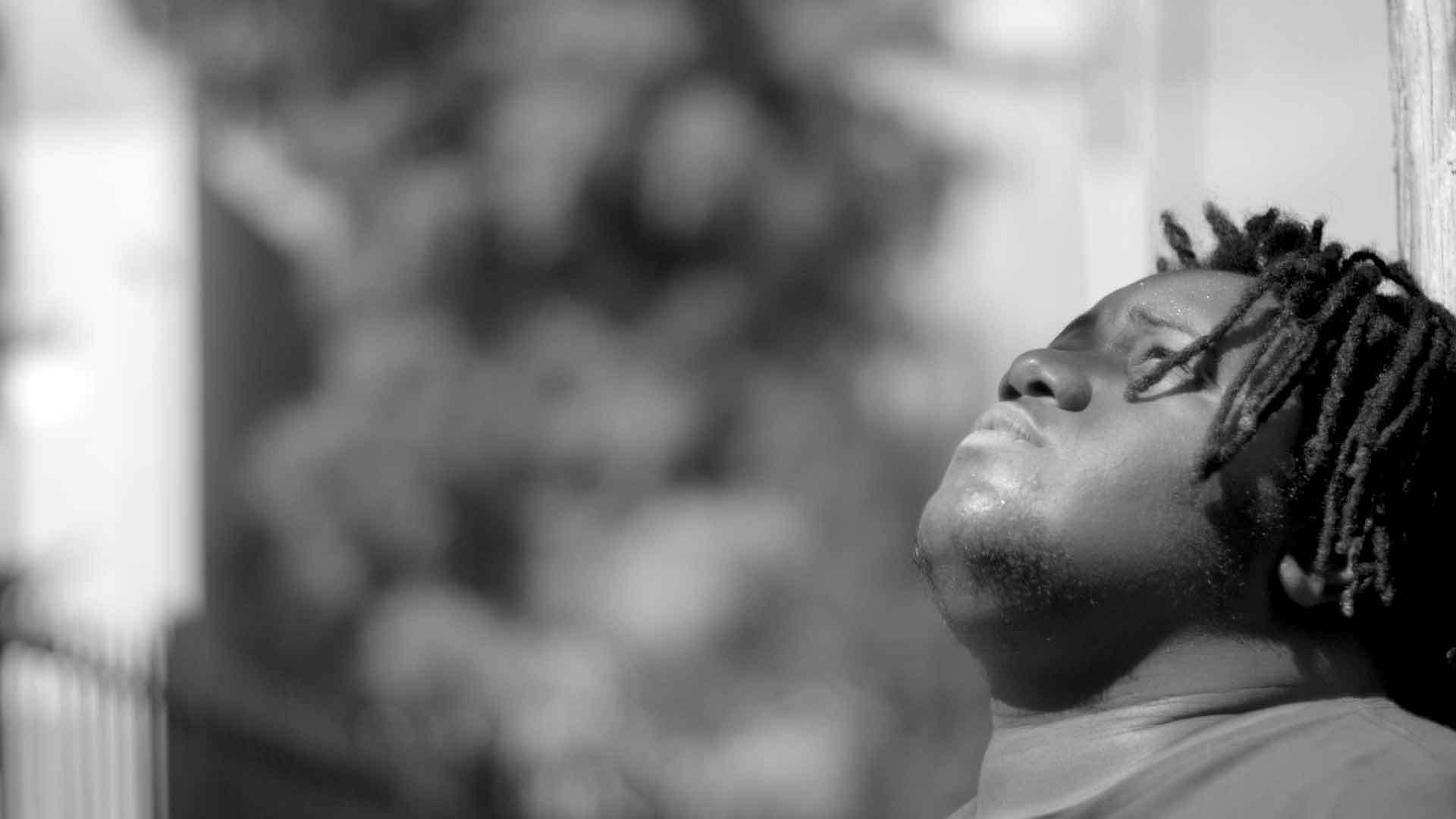
Jeff: But Randy McPhly is a person who symbolizes in so many ways the continuity from one of our primary inspirations, the Kendrick Lamar song and video for "Alright"--Randy was in it, when people talk about the dancers in that video, they talk about him. To be able to do this deep dive into his story, to say "here's this song, here's this video that was made about it." And take a person out of that, and what that says, it's just gives a whole new meaning to the song, to the video, and also to the book and the series and everything we're trying to say.
That's how we settled on him in the end.
Craig: If you could give other doc filmmakers who are also doing a web series, one piece of advice what would it be?
Bao: This is hard because this is technically the first web series I've ever directed/produced. So was a learning process for me.
"Don't do a 27-minute assembly." [Laughs]
I think having a clear message you want to say in each episode. For ours, each episode is a standalone, although they do have Jeff's voice in each. For filmmaking in general, I would say, don't compromise on your vision. For us, we talked about the black and white from day one. I know there was some pushback on that but I told Jeff that was the one thing I will not budge on. When I read the book, those were the images that were coming in my mind. If that's compromised, then why are we even making it?
Jeff: It was my first time on a filmmaking journey, so everything was new. It's completely a different form, and a web series is, of course, a different form than a movie. A certain kind of structure to it that is different. All the folks [ITVS] is funding are figuring that out in complex ways. For folks coming into this, I'd say be open about thinking about how to tell stories in a new kind of way.
I'm excited about what it's gonna do for my writing. How I'm going to be able to incorporate the ways we pulled this together, back to the books I have to finish. So yeah I learned a ton.
Craig: How did it affect what you're writing next? Are you visualizing it differently, or thinking about it as a series?
Jeff: All those things will seep in. In journalism, a front-page story has a certain form, a feature article or profile, a record or movie review has a certain form. The analogy I'd make: at one point people were moving from long-form record reviews to 100-word record reviews. Many writers rejected that. I didn't necessarily embrace it but I needed money so I learned how to do it, but the beauty of it is it made my writing so much better.
Learning about it, case by case, looking at the way that Bao viewed everything and put it together, that's definitely going to impact me.
One example: in the last episode, there are scenes that seem to be interstitial, somewhat abstract, but they really enhance what's happening on the screen which is influenced by people's voices. It's a really beautiful thing that had me ask, how would I find a linear writing way to represent that? A monologue that might sound pedantic. But Bao is contrasting that with abstract images. How do you pull that together in a writing way, that is an interesting challenge to figure out.
Bao: Just read a lot of [Japanese writer Haruki] Murakami. [laughs]
We Gon' Be Alright
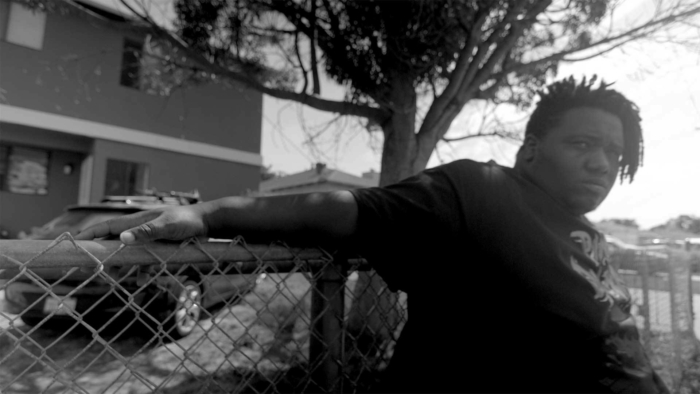
About the Author
More like this
Visit the Behind The Lens Blog